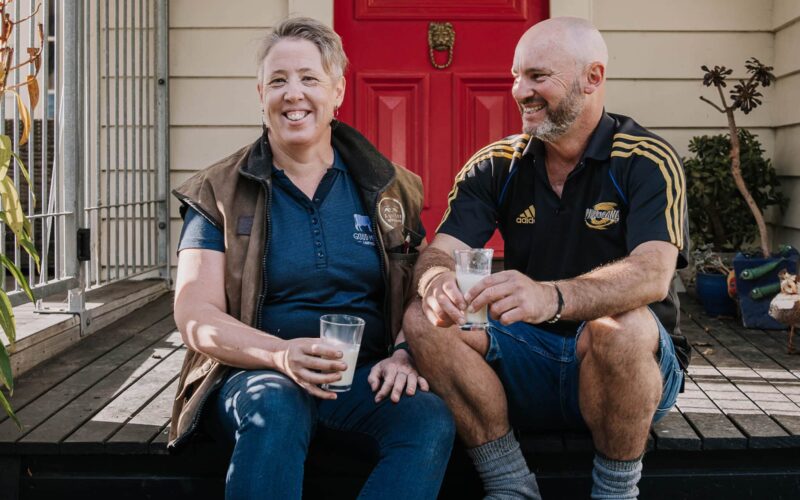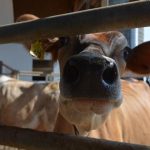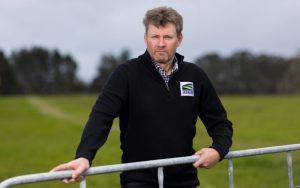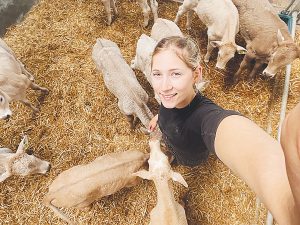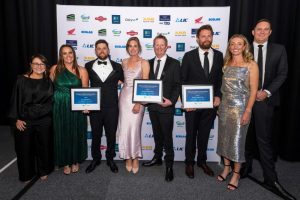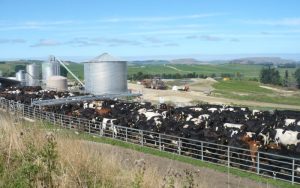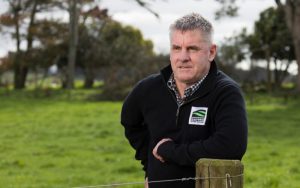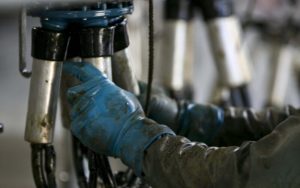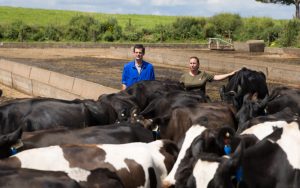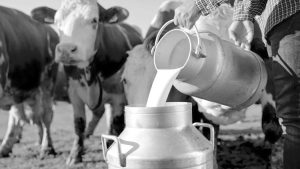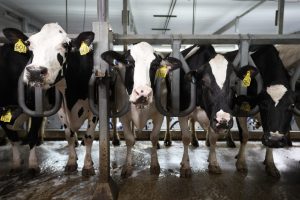
A Waikato farming couple played the long game in their quest to finally call themselves farm owners.
For Jodie Goudswaard and her husband to get from share milking to farm ownership in the rolling hills of the Waikato has been a fourteen-year journey – one made up of long-term strategic planning, juggling the daily grind and knowing when to take a break.
She shared her story with Shepherdess.
I grew up on a dairy farm, but it’s been a long road to farm ownership for me and my husband, Carl. He is a true city boy – grew up in Wellington and worked in outdoor education. We both lived in the city before deciding to get into farming. Carl had spent some time on my family’s farm, so he had an idea of what it was like, but it wasn’t until we gave dairy farming ago that he realised that’s what he wanted to do.
We’ve moved a lot; it’s part of a dairy farmer’s life. Our first dairy farming job was in Te Puke, then Rotorua, followed by Waihī; and our first sharemilking job was 200 cows in Te Aroha. From there, we moved on to 400 cows in Te Kauwhata, and finally to 530 cows in Walton – ten kilometres away from where we now have our own dairy farm. We actually walked our cows, about eighty of them, along the road from where we were sharemilking to our own farm after we’d bought it. That was a real community event – we had so many people helping us and others coming to watch.
Our farm is on the smaller side: it’s sixty hectares and we calve around 170 of our “liquorice allsorts” crossbred cows. The property is undulating, with a bit of a hill behind the house – legend has it that the house, which was moved onto the farm, was supposed to be on top of the hill, but the truck got stuck and had to unload it where it now stands. I started working off farm when my youngest was four years old, but during calving I’m still hands on. I’ll be up at 5am helping bring the cows in and then head to work at 7:30am. Once I’m back, around 5pm, Carl and I tag team with the kids’ after-school activities and farm jobs.
In our first few years sharemilking 200 cows, I would book our relief milker for the weekend and not tell Carl until 12pm on Friday, otherwise he would stress out. I would say, “I don’t care if we leave at 10pm but we are going.” It is really important to not just find a great relief milker but to also get off farm. I worked out early on that if we stayed on farm, Carl would end up still working all weekend. We always go away for a long weekend before mating starts, up to ten days camping in January, plus at least one weekend a month from February until dry-off. Plus we now have a sixteen-year-old who has just bought his first car, so he is keen to do the odd weekend milking as he needs the money!
We’ve always done strategic planning, and it was our long-term vision to have our own farm. It took a lot of hard work, and some thinking outside the box. We approached a couple of different banks before buying our farm, but decided to become clients of Rabobank as, being agribankers, they really understand farming business. Our bank manager, Dave, drove around the farm with us before we bought it and comes to visit us twice a year. He understands our vision of being proud dairy farmers who positively impact our environment and community. I’m also part of the Rabobank Client Council for the Upper North Island – we work together to identify rural community initiatives that Rabobank funding is then directed towards. Initiatives such as Garden to Table and native nurseries have received a boost from the bank.
The Piakoiti Stream runs through our property. We have a planting day coming up, where we will be planting around a thousand natives along the stream. We’ve got Walton School coming to help as well as several of the team from the Rabobank Matamata office. Pretty early on, we retired some steeper parts of our property from farming as well and have been planting along those and the stream each season. We’re funding all the planting ourselves and I’ve got a little nursery set up at home to help us get to the numbers we need to. We want to increase biodiversity on the farm and enjoy what we do, all while keeping a focus on our own well-being.
More: Rabobank is New Zealand’s only specialist food and agribank. Choose a bank that understands farming and talk to a Rabobank Agribusiness Manager today.
This story first appeared in the Shepherdess Takurua Winter 2024 Edition.
Story written as told to Petra Nyman and photographed by Vivian Gehrmann for Shepherdess magazine. Shepherdess magazine was started around a kitchen table on a dairy and beef farm in the Horowhenua. We continue to come to you from this kitchen table, and from many other farms, home offices and lounges across provincial Aotearoa. The magazine is here to connect, empower and inspire women across rural New Zealand, by offering a place to tell stories of our rural communities. Find out more about Shepherdess here shepherdess.co.nz
You can now read the most important #news on #eDairyNews #Whatsapp channels!!!
🇺🇸 eDairy News INGLÊS: https://whatsapp.com/channel/0029VaKsjzGDTkJyIN6hcP1K
